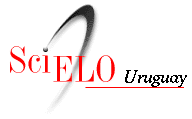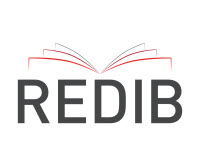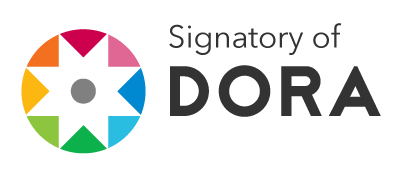Desarrollo de una aplicación para evaluar la confiabilidad de artículos de Wikipedia
Resumen
En la era digital, Wikipedia se ha consolidado como una fuente educativa importante, pero su naturaleza colaborativa genera inquietudes sobre la confiabilidad de sus contenidos. Este artículo presenta el desarrollo de una aplicación de software diseñada para evaluar la confiabilidad de los artículos de Wikipedia en español, utilizando indicadores como la densidad de citas, oraciones, imágenes y versiones en varios idiomas. La metodología incluyó entrevistas con expertos y grupos focales con educadores, lo que permitió identificar criterios clave de confiabilidad. Además, se aplicó la herramienta a artículos de Wikipedia para validar su eficacia. Los resultados muestran que los artículos destacados presentan una confiabilidad significativamente mayor que los artículos comunes y buenos artículos, reflejando la capacidad del estimador para detectar estas diferencias. A pesar de algunas limitaciones, como la falta de análisis de la calidad de las fuentes, el estimador ha demostrado ser una herramienta útil para evaluar la confiabilidad de manera rápida y precisa. Las conclusiones destacan el potencial de la herramienta para ser utilizada por docentes y estudiantes, promoviendo la alfabetización informacional y el pensamiento crítico en el uso de recursos digitales.
Descargas
Citas
Adler, B. T. y de Alfaro, L. (2007). A content-driven reputation system for the Wikipedia. En Proceedings of the 16th International Conference on World Wide Web (pp. 261-270). Association for Computing Machinery. https://doi.org/10.1145/1242572.1242608
Baica Preyones, L., Cabrera, M., Díaz Costoff, A., García-Rivadulla, S. y Ceretta, M. G. (2016). Experiencia exploratoria con maestros de apoyo del Plan Ceibal (Uruguay) como insumo para la creación de un Modelo de Alfabetización en Información. Revista Interamericana de Bibliotecología, 39(1), 15-22. https://doi.org/10.17533/udea.rib.v39n1a04
Chalabi, M. (2014, 30 de mayo). The 100 most-edited Wikipedia articles. FiveThirtyEight. https://fivethirtyeight.com/features/the-100-most-edited-wikipedia-articles/
Claes, F. y Tramullas, J. (2021). Estudios sobre la credibilidad de Wikipedia: una revisión. Área Abierta, 21(2), 187-204. https://doi.org/10.5209/arab.74050
Comparables AI (s. f.). Understanding benchmarking analysis: A step-by-step guide. Comparables AI. Recuperado de https://www.comparables.ai/articles/understanding-benchmarking-analysis-step-by-step-guide
Elmimouni, H., Forte, A. y Morgan, J. (2022). Why people trust Wikipedia articles: Credibility assessment strategies used by readers. En Proceedings of the 2022 International Symposium on Open Collaboration (OpenSym 2022) (pp. 1-10). Association for Computing Machinery. https://doi.org/10.1145/3555051.3555052
Ford, H. y Geiger, R. S. (2012). Writing up rather than writing down: Becoming Wikipedia literate. Proceedings of the 8th International Symposium on Wikis and Open Collaboration, 16, 109-112. https://doi.org/10.1145/2462932.2462954
Fowler, M. (2002). Patterns of Enterprise Application Architecture. Addison-Wesley.
Geeks For Geeks. (2023, 19 de abril). Difference and similarities between PHP and C [entrada de blog]. Geeks For Geeks. https://www.geeksforgeeks.org/difference-and-similarities-between-php-and-c/
Gómez Fermín, L. V. y Moreno Poggio, T. R. (2014). Propuesta de modelo en cinco capas para aplicaciones web. Saber, 26(2), 168-173. Recuperado de: http://ve.scielo.org/scielo.php?script=sci_arttext&pid=S1315-01622014000200009&nrm=iso
Haigh, C. A. (2011). Wikipedia as an evidence source for nursing and healthcare students. Nurse Education Today, 31(2), 135-136. https://doi.org/10.1016/j.nedt.2010.05.004
Halfaker, A., Geiger, R. S., Morgan, J. y Riedl, J. (2012). The rise and decline of an open collaboration system: How Wikipedia’s reaction to popularity is causing its decline. American Behavioral Scientist, 57(5), 664-688. https://doi.org/10.1177/0002764212469365
Hernández Ramos, J. P., Martínez Abad, F. y Torrecilla Sánchez, E. M. (2014). Valoración de la wiki como recurso educativo en e-learning. Pixel-Bit. Revista de Medios y Educación, 44, 97-111. https://doi.org/10.12795/pixelbit.2014.i44.07
Kaplan, A. M. y Haenlein, M. (2010). Users of the world, unite! The challenges and opportunities of Social Media. Business Horizons, 53(1), 59-68. https://doi.org/10.1016/j.bushor.2009.09.003
Karayiannis, C. (2019). Server-Side Programming with PHP. En C. Karayiannis (ed.), Web-Based Projects that Rock the Class: Build Fully-Functional Web Apps and Learn Through Doing (pp. 39-87). Apress. https://doi.org/10.1007/978-1-4842-4463-0_2
Krishnamoorthy, B. y D’Lima, C. (2014). Benchmarking as a measure of competitiveness. International Journal of Process Management and Benchmarking, 4(3), 342-359. https://doi.org/10.1504/IJPMB.2014.063240
Lewoniewski, W., Węcel, K. y Abramowicz, W. (2020). Modeling popularity and reliability of sources in multilingual Wikipedia. Information, 11(5), 263. https://doi.org/10.3390/info11050263
Limaye, A. y Adegbija, T. (2018). A Workload Characterization of the SPEC CPU2017 Benchmark Suite. 2018 IEEE International Symposium on Performance Analysis of Systems and Software (ISPASS) (pp. 149-158). https://doi.org/10.1109/ISPASS.2018.00028
Martínez, C. (2012). Estadística y muestreo. Ecoe.
Morales-Vargas, A., Pedraza-Jiménez, R. y Codina, L. (2022). Calidad web en medios digitales: revisión bibliográfica sobre métodos e indicadores de evaluación general y atributos de confianza. Revista Latina de Comunicación Social, 80, 39-63. https://doi.org/10.4185/RLCS-2022-1515
Murray, D. M. (2012). Writing for academic journals. Routledge.
Niederer, S. y Van Dijck, J. (2010). Wisdom of the crowd or technicity of content? Wikipedia as a sociotechnical system. New Media & Society, 12(8), 1368-1387. https://doi.org/10.1177/1461444810365297
O’Grady, S. (2024, 8 de marzo). The RedMonk programming language rankings: January 2024. RedMonk. https://redmonk.com/sogrady/2024/03/08/language-rankings-1-24/
Oezhan, D. (2022, 15 de diciembre). PHP 5 features & improvements. Medium. https://medium.com/@oezhan/php-5-features-improvements-81418ba13660
Patzer, A. y Moodie, M. (2004). The Front Controller Pattern. En M. Moodie (ed.), Foundations of JSP Design Patterns (pp. 143-165). Apress. https://doi.org/10.1007/978-1-4302-0736-8_7
PHP.net. (2004). History of PHP and related projects. PHP.net. https://www.php.net/manual/en/history.php
Prosper, E. (2023, 1.o de enero). Introduction to CRUD functions with procedural PHP. DEV. https://dev.to/excceedder/introduction-to-crud-functions-with-procedural-php-5am1
Sage, A. (2024). The impact of false content on Wikipedia. Times of London.
Stvilia, B., Twidale, M. B., Smith, L. C. y Gasser, L. (2008). Information quality work organization in Wikipedia. Journal of the American Society for Information Science and Technology, 59(6), 983-1001. https://doi.org/10.1002/asi.20813
Sugandhika, C. y Ahangama, S. (2021). Modelling Wikipedia’s information quality using informativeness, reliability and authority. En 2021 3rd International Conference on Advancements in Computing (ICAC) (pp. 169-174). IEEE. https://doi.org/10.1109/ICAC54211.2021.9694128
Wikipedia: Artículos destacados (2022). En Wikipedia. https://es.wikipedia.org/wiki/Wikipedia:Artículos_destacados
Derechos de autor 2024 Jose Jorge Fager, Crediné Silva de Menezes

Esta obra está bajo licencia internacional Creative Commons Reconocimiento 4.0.







.jpg)




















